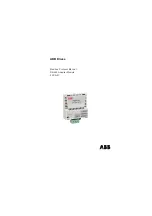
BC4000 Series RAID Controllers
User Manual
02/13/06
B ro ad c om C o r p or at i on
Page 12
Installing BC4000 Series Controllers
Document
BC4000-UM100-R
S e c t i o n 4 : I n s t a l l i n g B C4 0 0 0 S e r i e s Co n t ro l l e rs
O
VERVIEW
OF
THE
I
NSTALLATION
P
ROCESS
This section is designed to quickly get the controller up and running using default settings, which for most users
are the optimal settings. For instructions on how to modify any of the default settings, see
Section 7: “Using
the BIOS Configuration Utility” on page 50
and either
Section 8: “Using RAIDConsole” on page 60
or
Section
9: “Using bcadm” on page 114
.
To upgrade an existing BC4000 Series RAID controller, see
Section 5: “Updating the Drivers, Firmware, and
Applications” on page 36
.
S
YSTEM
R
EQUIREMENTS
Before attempting to install a BC4000 Series RAID controller, be sure the system meets the requirements
described in
Table 4
.
Table 4: System Requirements
Item
Requirements
Processor
x86, 32-bit or 64-bit compatible processor greater than 500 MHz
Memory
256 MB minimum
Hard disk
At least one SATA disk; the number of disks depends on the number, type, and capacity of arrays to be
created.
Available
Slots
One PCI or PCI-X slot per controller (PCI-X 133/100/66, PCI-64 66/33, PCI-32 66/33)
Operating
System
•
Windows 2000 (Professional, Server, Advanced Server) with Service Pack 4 or later
•
Windows XP (Professional Edition–64-bit and 32-bit, Home Edition, Media Edition)
•
Windows Server 2003 (Enterprise Edition, Standard Edition, Web Edition) (64-bit and 32-bit)
Note:
Microsoft .NET Framework 1.1 is required for all Windows installations.
•
Red Hat
®
Linux 9 and Red Hat Enterprise Linux 3 (32-bit only)
•
Red Hat Enterprise Linux 4 (64-bit and 32-bit)
•
Red Hat Fedora™ Core 1 and 2 (32-bit only)
•
Red Hat Fedora Core 3 and 4 (64-bit and 32-bit)
•
SuSE™ Linux Professional 9.1 and 9.2 (32-bit only)
•
SuSE Linux Professional 9.3 (64-bit and 32-bit)
•
SuSE Linux Enterprise Server 9 (64-bit and 32-bit)
•
SuSE Linux Enterprise Server 10 (64-bit and 32-bit)
Visit the Broadcom website at:
http://www.broadcom.com/storage
for Linux errata kernel support and
additional Linux support.
















































